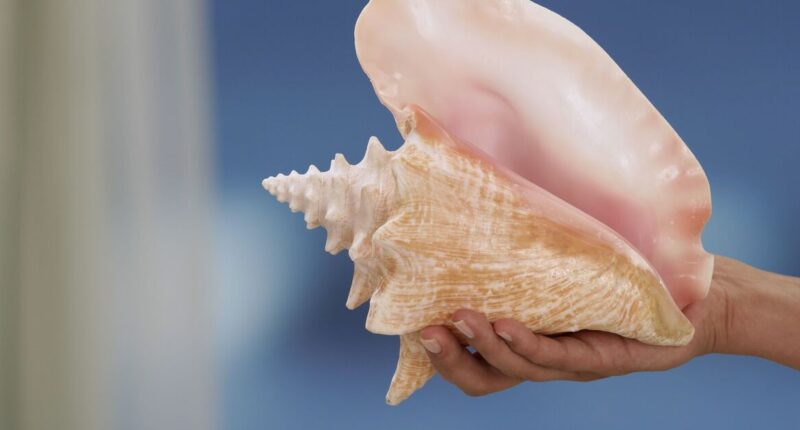Share this @internewscast.com
Scientists have come up with an unusual solution for sleep problems — try blowing through a conch shell. A study in India found that people with obstructive sleep apnoea (OSA) who practiced the yogic breathing exercise slept better, felt more alert during the day and had fewer breathing interruptions at night.
The process, also known as shankh blowing, involves a deep inhalation followed by a forceful, sustained exhalation through tightly pursed lips. Dr Krishna K Sharma, from the Eternal Heart Care Centre and Research Institute in Jaipur, said: “This action creates strong vibrations and airflow resistance, which likely strengthens the muscles of the upper airway, including the throat and soft palate — areas that often collapse during sleep in people with OSA.
“The shankh’s unique spiralling structure may also contribute to specific acoustic and mechanical effects that further stimulate and tone these muscles.”
The study involved 30 patients aged 19 to 65, who were assigned to either blow through a conch shell or practice a deep breathing exercise.
They practised for a minimum of 15 minutes, five days a week, and the results were assessed six moths later.
Participants in the shankh blowing group were 34% less sleepy during the day than those who did deep breathing.
They also typically had four to five fewer episodes where their breathing stopped, known as apnoeas, per hour.
Dr Sharma said patients often find the standard treatment for OSA, which uses a CPAP machine to blow air through a face mask, uncomfortable.
He added: “Shankh blowing is a simple low-cost, breathing technique that could help improve sleep and reduce symptoms without the need for machines or medication.
“This is a small study, but we are now planning a larger trial involving several hospitals.”
Dr Erika Kennington, head of research and innovation at Asthma + Lung UK, said: “The findings of this trial are encouraging, but the small scale of the trial means it’s too soon to say for certain that conch blowing can help people manage their obstructive sleep apnoea (OSA).
“It’s also not clear from this research, why blowing through a conch shell regularly might improve someone’s symptoms. Supporting people to manage their lung health in ways that feel accessible to them is incredibly important.
“Previous research has suggested that playing a woodwind instrument could help with OSA. More research is needed to explore how alternatives to using medication might improve the condition.
“However, funding for lung health research is on life support and urgent action is needed to boost investment.
“It would be good to see the conch blowing approach tested on a larger scale and compared with other proven strategies, such as limiting alcohol, staying active and maintaining good bedtime habits.
“OSA is a long-term condition, but with the right treatments and lifestyle changes, people can make a real difference to their symptoms.”
The findings were published in the journal ERJ Open Research.













